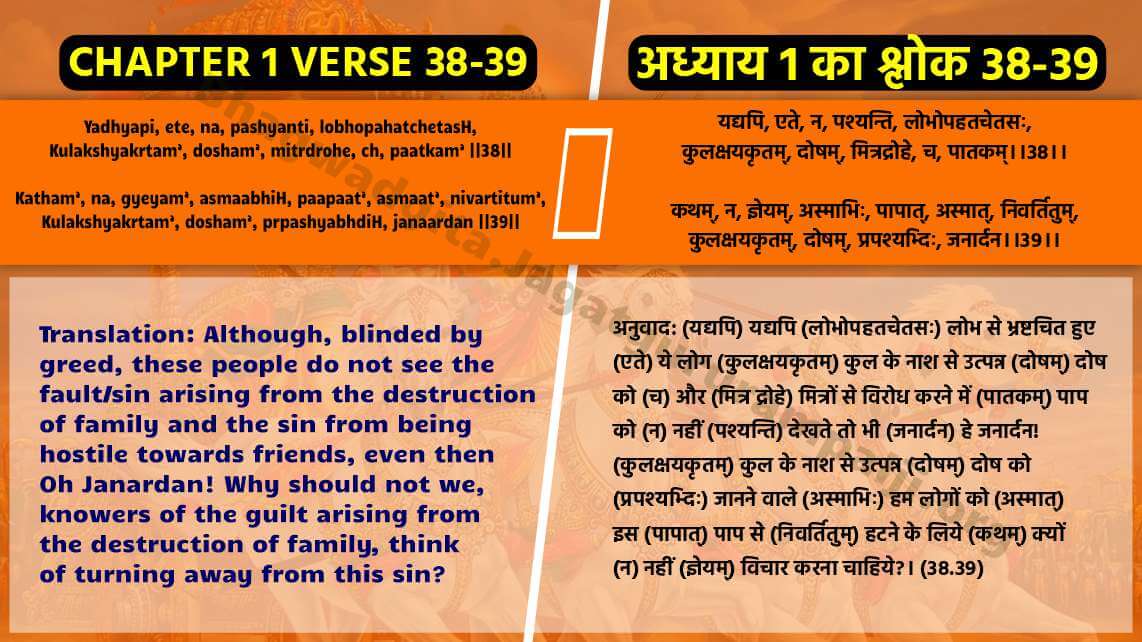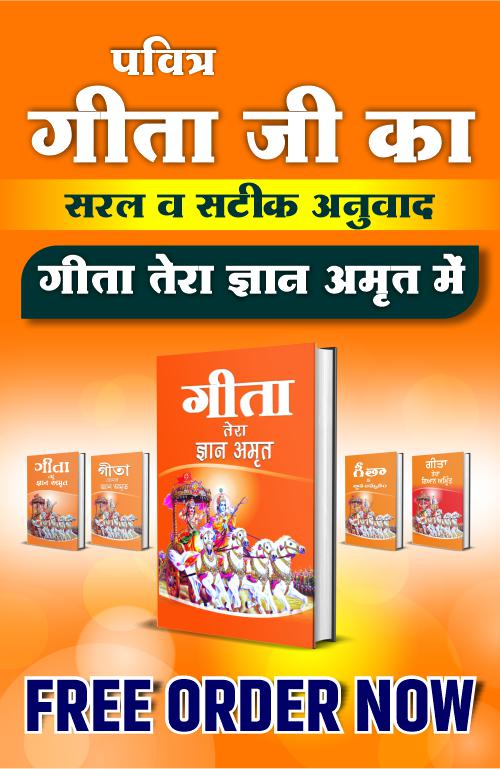
Yadhyapi, ete, na, pashyanti, lobhopahatchetasH,
Kulakshyakrtam’, dosham’, mitrdrohe, ch, paatkam’ ||38||
Katham’, na, gyeyam’, asmaabhiH, paapaat’, asmaat’, nivartitum’,
Kulakshyakrtam’, dosham’, prpashyabhdiH, janaardan ||39||
Translation: (Yadhyapi) although (lobhopahatchetasH) blinded by greed (ete) these people (kulakshyakritam’) originating from the destruction of family (dosham’) fault/sin (ch) and (mitrdrohe) in hostility towards friends (paatkam’) sin (na) not (pashyanti) see, then also (janaardan) Oh Janardan! (Kulakshyakrtam’) originating from destruction of family (dosham’) fault/sin (prpashyabhdiH) knower (asmaabhiH) we people (asmaat’) this (paapaat’) from sin (nivartitum’) to turn away (katham’) why (na) not (gyeyam’) must think?
Translation: Although, blinded by greed, these people do not see the fault/sin arising from the destruction of family and the sin from being hostile towards friends, even then Oh Janardan! Why should not we, knowers of the guilt arising from the destruction of family, think of turning away from this sin?
यद्यपि, एते, न, पश्यन्ति, लोभोपहतचेतसः,
कुलक्षयकृतम्, दोषम्, मित्रद्रोहे, च, पातकम्।।38।।
कथम्, न, ज्ञेयम्, अस्माभिः, पापात्, अस्मात्, निवर्तितुम्,
कुलक्षयकृतम्, दोषम्, प्रपश्यभ्दिः, जनार्दन।।39।।
अनुवाद: (यद्यपि) यद्यपि (लोभोपहतचेतसः) लोभसे भ्रष्टचित हुए (एते) ये लोग (कुलक्षयकृतम्) कुलके नाशसे उत्पन्न (दोषम्) दोषको (च) और (मित्रद्रोहे) मित्रोंसे विरोध करनेमें (पातकम्) पापको (न) नहीं (पश्यन्ति) देखते तो भी (जनार्दन) हे जनार्दन! (कुलक्षयकृतम्) कुलके नाशसे उत्पन्न (दोषम्) दोषको (प्रपश्यभ्दिः) जाननेवाले (अस्माभिः) हमलोगोंको (अस्मात्) इस (पापात्) पापसे (निवर्तितुम्) हटनेके लिये (कथम्) क्यों (न) नहीं (ज्ञेयम्) विचार करना चाहिये?। (38, 39)
